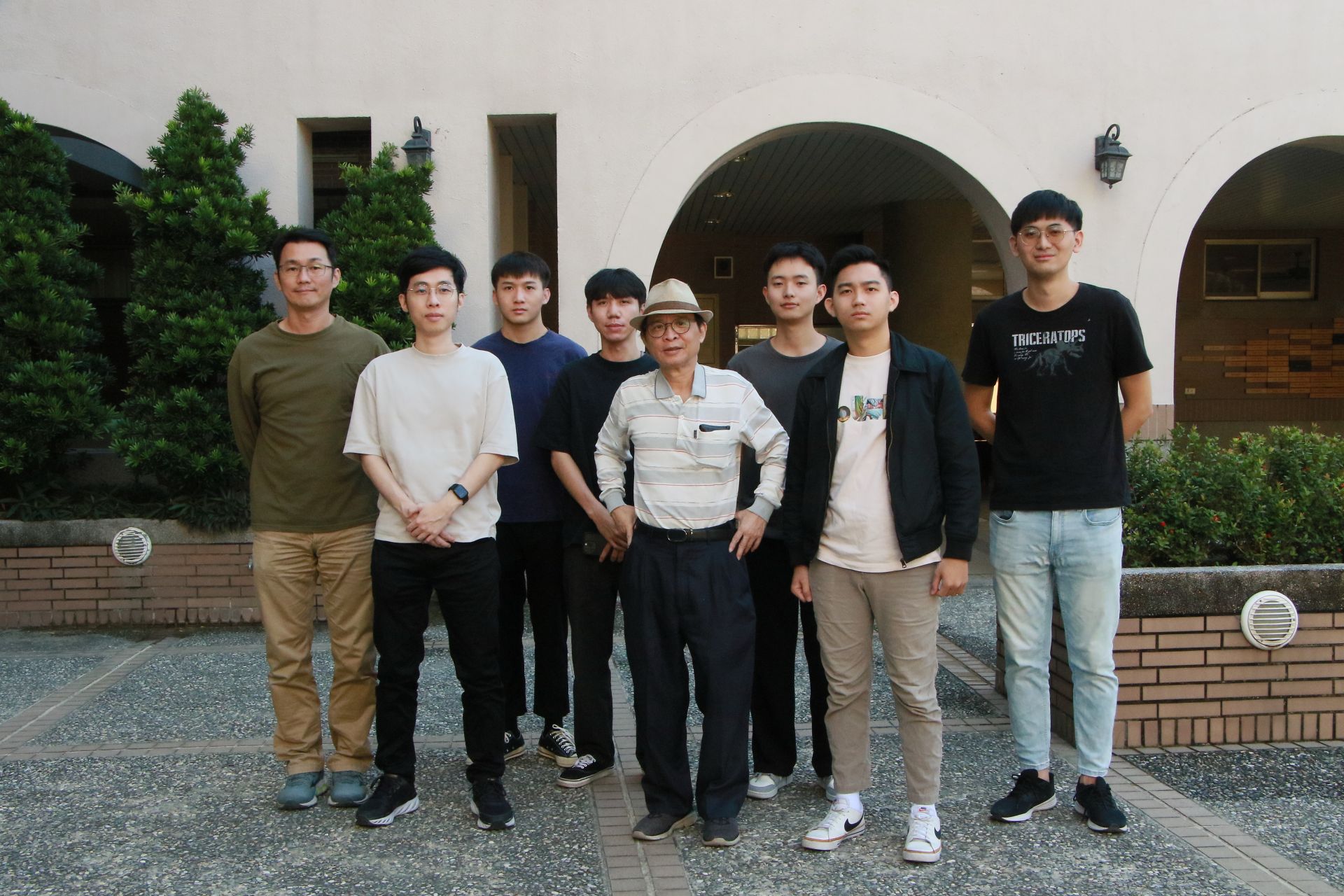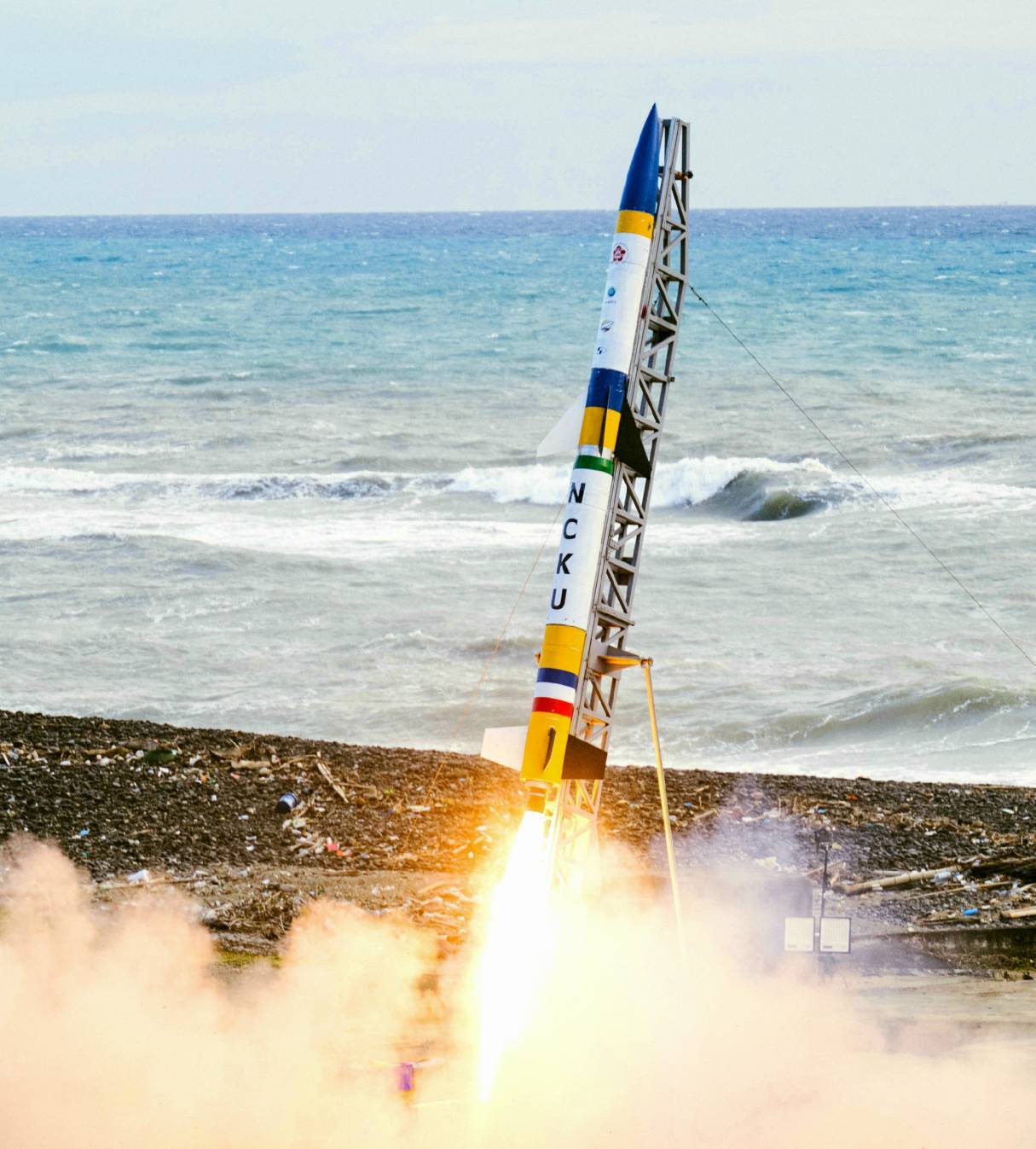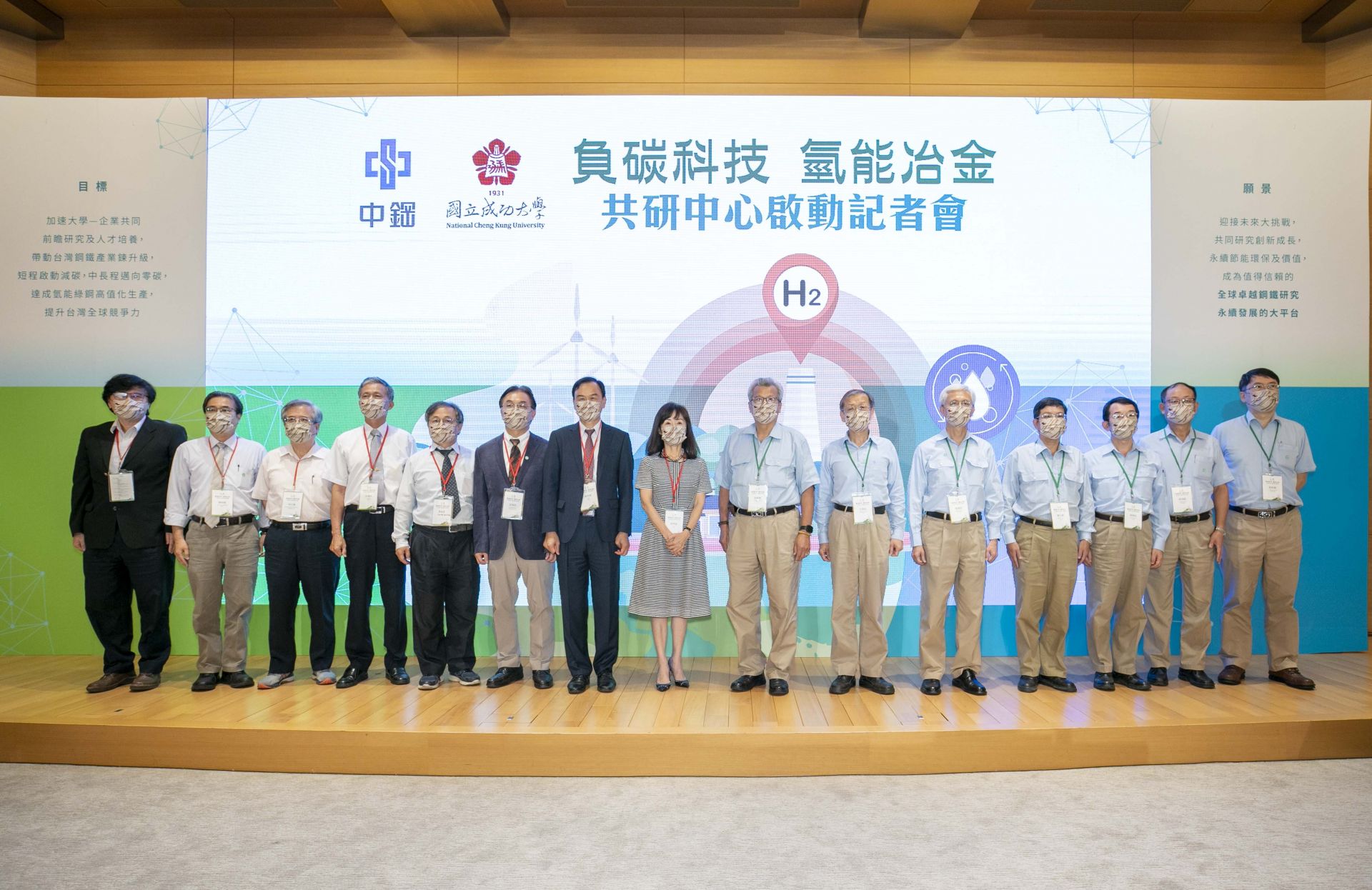SDG9
NCKU excelled in the 6th Asia-Pacific HPC-AI Student Competition 2023, winning Best AI Performance Award and Third Prize.
NCKU's student team, led by Professor Chi-Chuan Hwang, Chair Professor of the Department of Engineering Science, and Coach Chao-Chin Li, achieved outstanding results in the 6th Asia-Pacific High Performance Computing and Artificial Intelligence (HPC-AI) Student Competition in 2023. They surpassed the conference record in the AI competition and received the "Best AI Performance Award." Additionally, the team demonstrated commendable performance in enhancing the efficiency of the "Cross-Scale Climate Prediction Model" (MPAS software), securing third place.
The HPC-AI competition, organized by the High Performance Computing and Artificial Intelligence Advisory Council and the National Supercomputing Center in Singapore, is an international non-profit organization with over 400 members from businesses, universities, and research institutions worldwide. The competition featured 22 outstanding teams from 11 countries and regions, including Taiwan, Singapore, China, Hong Kong, Australia, India, Bangladesh, Malaysia, Indonesia, Sri Lanka, and Thailand. The competition took place from May 19 to November 16, 2023.
The NCKU team, named "YoshiGawa," consisted of nine students from the Department of Engineering Science: Zi-Yu Lin, Jing-Yu Wu, Dun-Han Shi, Yu-Hsien Yeh, Shang-Ting Ko, Yao-Yang Chung, Wei-Chen Hung, Shao-Chen Chan, and Pin-Shang Lee. Participating in the HPC-AI competition requires high proficiency in cross-disciplinary software applications and parallel computing on supercomputers. Students had to engage in extensive self-improvement, interdisciplinary learning, and training, all while preparing for the competition. The pressure and perseverance required in this process are beyond what outsiders can fully comprehend.
Professor Chi-Chuan Hwang emphasized that the HPC-AI competition focuses on the application of cross-disciplinary software, spanning from calculations at the atomic and molecular levels to fluid dynamics and even artificial intelligence. Participating students not only need expertise in their own fields but also a good understanding of other theoretical areas. For example, in the "Cross-Scale Climate Prediction Model" MPAS software efficiency competition, students needed knowledge in global warming and meteorology. The students learned to install operating systems and other related programs on servers, which were areas they had less exposure to. Professor Huang commended the students for their dedication, willingness to put in effort, and ability to handle the pressure.
The competition featured two parts: "Cross-Scale Climate Prediction Model," using the atmospheric numerical simulation software MPAS, and "Large Open Science Access Multilingual Language Model," using the BLOOM software. The NCKU team focused on improving the efficiency of the MPAS software by restructuring input structures and allocating hardware resources, achieving a 50% increase in computational efficiency.
In the second part, the team concentrated on enhancing the inference speed of large language models, using the BLOOM software on the Gadi supercomputer in Australia with eight NVIDIA A100 GPUs for single-node inference. This effort resulted in a 90% increase in efficiency for the language model's information processing on the same GPU specifications, surpassing the data published by the official Hugging Face website.
Professor Chi-Chuan Hwang expressed his gratitude to the various units, including the Department of Engineering Science, the College of Engineering, the Computer and Network Center, the National Center for High-performance Computing, the GIGA-BYTE Education Foundation, and TWOWAY Communications Inc., Ltd., for their support in providing computational resources and funding.
Professor Huang hopes that participating in the HPC-AI student competition will become an educational tradition, and with the support of the school, industry, and the country, it will help cultivate Taiwanese students who can compete globally in the field of scientific computing.
The HPC-AI competition, organized by the High Performance Computing and Artificial Intelligence Advisory Council and the National Supercomputing Center in Singapore, is an international non-profit organization with over 400 members from businesses, universities, and research institutions worldwide. The competition featured 22 outstanding teams from 11 countries and regions, including Taiwan, Singapore, China, Hong Kong, Australia, India, Bangladesh, Malaysia, Indonesia, Sri Lanka, and Thailand. The competition took place from May 19 to November 16, 2023.
The NCKU team, named "YoshiGawa," consisted of nine students from the Department of Engineering Science: Zi-Yu Lin, Jing-Yu Wu, Dun-Han Shi, Yu-Hsien Yeh, Shang-Ting Ko, Yao-Yang Chung, Wei-Chen Hung, Shao-Chen Chan, and Pin-Shang Lee. Participating in the HPC-AI competition requires high proficiency in cross-disciplinary software applications and parallel computing on supercomputers. Students had to engage in extensive self-improvement, interdisciplinary learning, and training, all while preparing for the competition. The pressure and perseverance required in this process are beyond what outsiders can fully comprehend.
Professor Chi-Chuan Hwang emphasized that the HPC-AI competition focuses on the application of cross-disciplinary software, spanning from calculations at the atomic and molecular levels to fluid dynamics and even artificial intelligence. Participating students not only need expertise in their own fields but also a good understanding of other theoretical areas. For example, in the "Cross-Scale Climate Prediction Model" MPAS software efficiency competition, students needed knowledge in global warming and meteorology. The students learned to install operating systems and other related programs on servers, which were areas they had less exposure to. Professor Huang commended the students for their dedication, willingness to put in effort, and ability to handle the pressure.
The competition featured two parts: "Cross-Scale Climate Prediction Model," using the atmospheric numerical simulation software MPAS, and "Large Open Science Access Multilingual Language Model," using the BLOOM software. The NCKU team focused on improving the efficiency of the MPAS software by restructuring input structures and allocating hardware resources, achieving a 50% increase in computational efficiency.
In the second part, the team concentrated on enhancing the inference speed of large language models, using the BLOOM software on the Gadi supercomputer in Australia with eight NVIDIA A100 GPUs for single-node inference. This effort resulted in a 90% increase in efficiency for the language model's information processing on the same GPU specifications, surpassing the data published by the official Hugging Face website.
Professor Chi-Chuan Hwang expressed his gratitude to the various units, including the Department of Engineering Science, the College of Engineering, the Computer and Network Center, the National Center for High-performance Computing, the GIGA-BYTE Education Foundation, and TWOWAY Communications Inc., Ltd., for their support in providing computational resources and funding.
Professor Huang hopes that participating in the HPC-AI student competition will become an educational tradition, and with the support of the school, industry, and the country, it will help cultivate Taiwanese students who can compete globally in the field of scientific computing.

Engineering Science students participated in the 6th Asia-Pacific "High-Performance Computing and Artificial Intelligence (HPC-AI) Student Competition" in 2023, demonstrating impressive performance. (Front row center: Professor Chi-Chuan Hwang)

SDG9Taiwan’s Lilium-2 and Lilium-3 Satellites Achieve Successful Contact, Highlighting NCKU’s Expertise in LEO Satellite Development
View more
SDG9NCKU's Two-stage Hybrid Rocket was Successfully Launched at the Syuhai Scientific Research Rocket Launch Site
View more



















